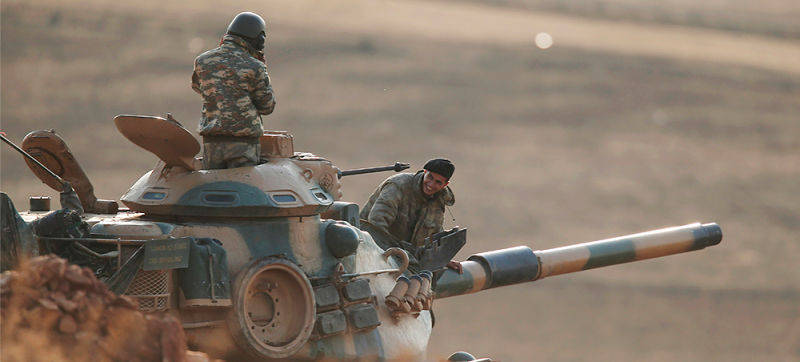 Tension between Baghdad and Ankara has increased after the Turkish parliament approved to prolong the presence of their forces in Iraqi-Kurdistan region.
Tension between Baghdad and Ankara has increased after the Turkish parliament approved to prolong the presence of their forces in Iraqi-Kurdistan region.
Meanwhile, the UN, through spokesperson Farhan Haq, encouraged the two parties to continue working on resolving “the matter amicably” and urged the Turkish Government to “ensure that all activities in Iraq are conducted with the full consent of the Iraqi Government.”
Iraqi Prime Minister Haider al-Abadi fears that “the Turkish adventure could turn into a regional war” while stressing that “the Turkish leadership’s behavior is not acceptable and we don’t want to get into a military confrontation with Turkey.”
The Iraqi parliament also rejected the approval and called on the government to review its ties with Ankara.
The relations are swiftly deteriorating as Turkish Deputy Prime Minister Numan Kurtulmuş defiantly stated that “no one has the right to object to Turkey’s presence in Bashiqa when the country (Iraq) is fragmented that much.” Turkish Prime Minister Binali Yildirim on his part said, “no matter what Baghdad says,” the troops will remain in their position as he considered the reaction of Iraqi authorities to be “incomprehensible.”
President Erdogan hinted that “once Mosul is rescued from ISIS, only Sunni Arabs, Turkmen and Sunni Kurds should remain there,” signaling fears of Kurds and Shias settling in the region.
The Bashiqa army base is located north of Mosul, ISIS’s de facto headquarters in Iraq. The Turkish government argues that it has the approval of Baghdad to send in troops and refutes allegations of occupation claimed by Iraqi authorities.
Iraq referred the matter to the Security Council on Thursday and requested an emergency session to discuss “Turkish violations on the Iraqi soil and the interference in its internal affairs” according to Foreign Ministry spokesman Ahmad Jamal. However, Turkish Deputy Prime Minister Kurtulmuş said “neither Turkey’s presence in Bashiqa nor its operation right now in Syrian territory are aimed at occupying or interfering with the domestic affairs of these countries.”
